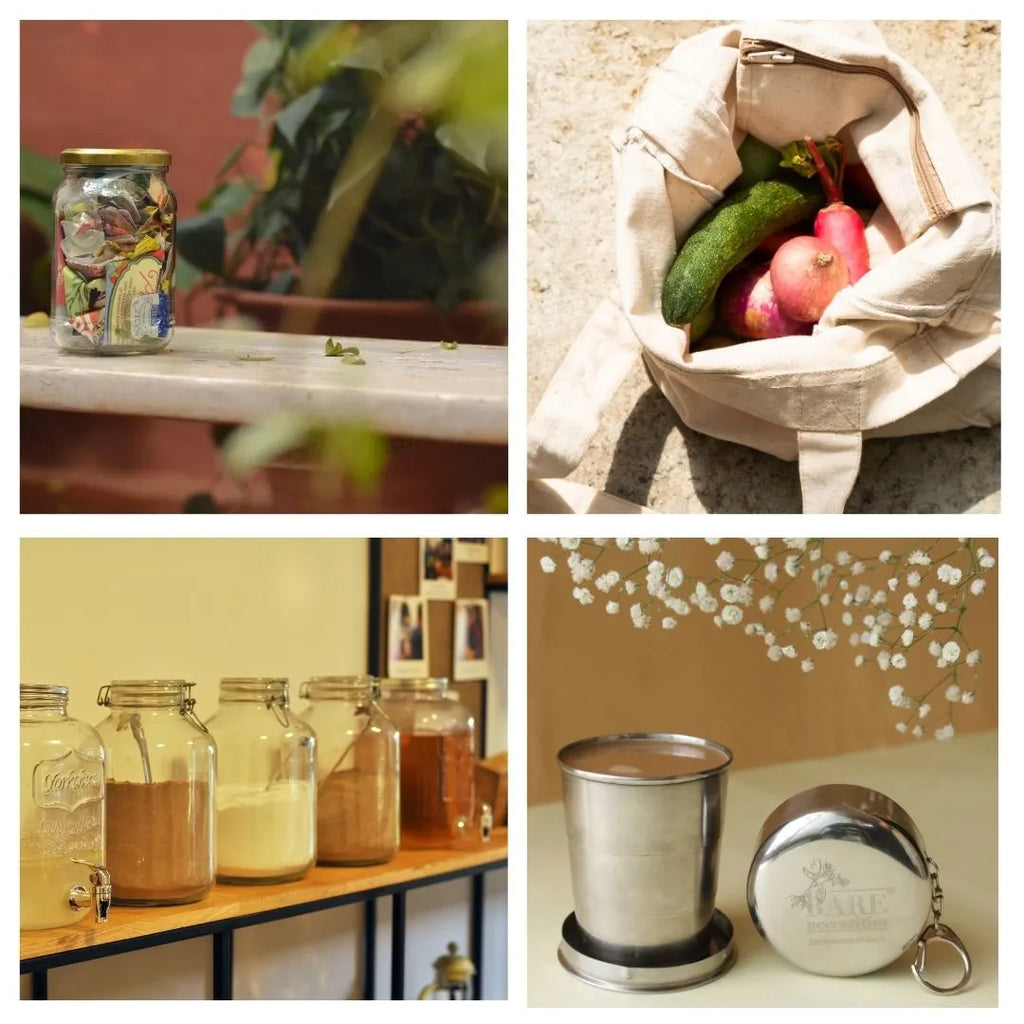What is Plastic Free July?

Plastic. It's everywhere. From our grocery bags to our water bottles, plastic has become an undeniable part of our lives. The ubiquitous use of plastic is a classic case, where convenience trumps sustainability.
Mindful consumption and environment stewardship are gaining increased traction, with more individuals hopping on the sustainability bandwagon. While any time is a good time to rethink waste, July is particularly special for it is Plastic Free July!
We’ve spoken about Plastic Free July several times through our social media channels and our blogs too. It’s a special occasion for us and it aligns deeply with our mission here at Bare Necessities. The global movement challenges individuals to rethink their relationship with plastic and actively reduce its usage throughout the month, and carry it forward beyond July. At its core, Plastic Free July encourages us to become more conscious with our consumption, making intentional choices that benefit both our lives and the planet.
This Plastic Free July, we want to talk about the power of conscious consumption. Very simply put, it is a practice that focuses on being mindful of what one purchases and why. It’s about understanding the environmental and social impact of your purchases.
Buyerarchy of Needs:
Maslow’s hierarchy of needs is a theory in psychology that arranges human needs in a certain order from the most basic survivalistic needs at the bottom to the more intellectually advanced ones at the top.
Inspired by this concept, writer, artist and illustrator, Sarah Lazarovic, created the Buyerarchy of Needs. This is a super fun way to represent sustainable consumption. While this pyramid was created keeping the fashion industry in mind, its fundamental tenets can very easily be extended to other aspects of life.
According to this pyramid, in order to be the most sustainable, users must start at the base of the pyramid, slowly eliminating one option at a time and then work their way towards the very top of the pyramid.

How to be a conscious consumer?
The next time you are out on a shopping spree, ask yourself these questions:
- Do I really need this?
- Can I purchase a plastic free alternative of the item?
- Can I reuse something I already have?
By making these choices, you are individually contributing to a cleaner, greener future.
Quick swaps to reduce your waste:
1. Say No to Single-Use Plastics:
We’ve said this once, twice and so many more times, and we’ll say it again, eliminate single use plastics from your life! From single use plastic straws to bags to cutlery, say goodbye to them and opt for reusable alternatives made from stainless steel, natural fibres [bamboo, banana fibre etc.] and glass
2. Sustainable Packaging:
When you’re out shopping, look out for products with minimal or biodegradable packaging. Keep an eye out for the greenwashing goons out there. Therefore, support brands that use eco-friendly materials and packaged goods in recyclable or compostable materials.
3. Shop local and seasonal:
An easy way to reduce carbon footprint is by purchasing locally produced goods and seasonal produce. It supports local economies, reduces transportation emissions and oftentimes you have fresher, healthier products
4. Quality Over Quantity:
Invest in durable goods that are built to last, minimising the need for frequent replacements, thereby reducing waste
5. DIY and Upcycling:
Put your creative cap on and give your old items a makeover! This not only reduces waste, but also adds a personal touch
As we enter Plastic Free July this year, let’s prepare ourselves to make mindful choices that reflect planet friendly choices. By embracing conscious consumerism, we are paving the way for a cleaner, brighter future for all.
